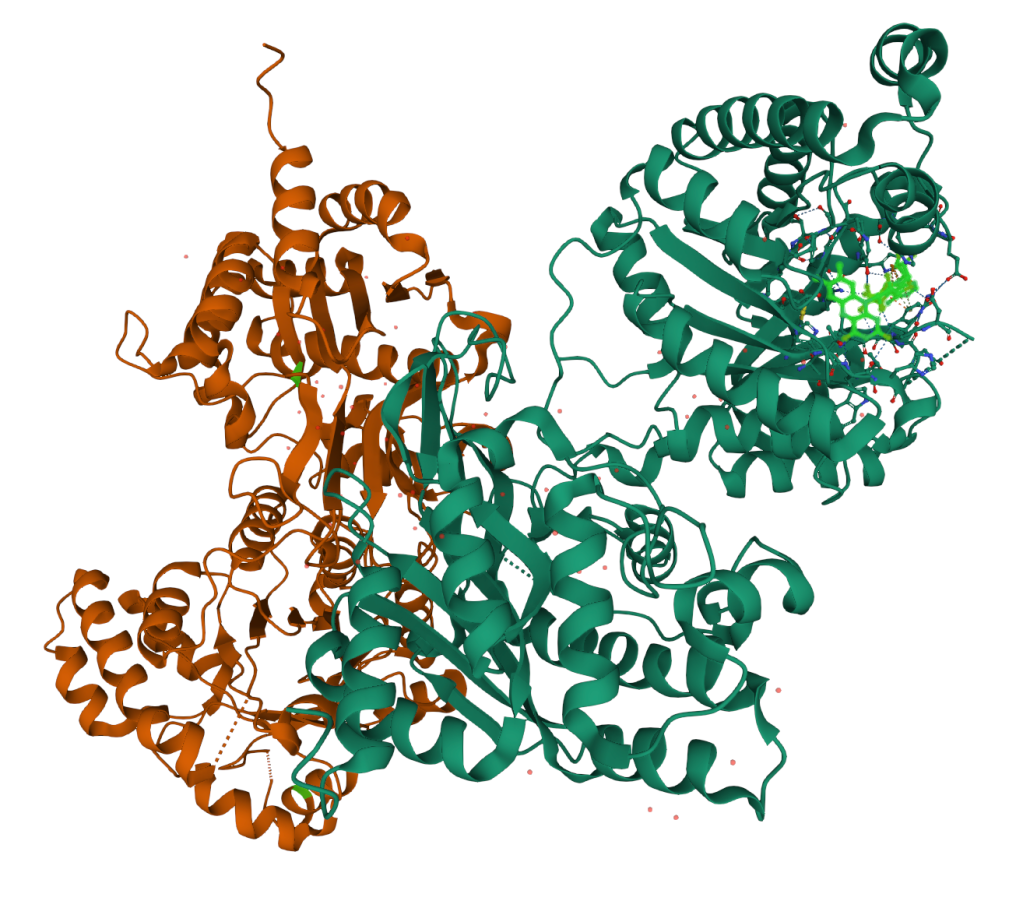Hypertension affects 1.13 billion people globally and remains the leading risk factor for cardiovascular disease-related mortality worldwide.1 A variety of pharmacological, diet and lifestyle interventions are applied in clinical settings with considerable inter-individual variation in responses and outcomes. Personalization based on genetic insights has the potential to reduce trial and error and expedite cardiovascular risk reduction.
In the patchwork quilt of predisposing variants identified in genome-wide association studies, actionable insights remain vague. The controlled clinical trials needed to validate interventions have focused on the pharmacogenomics of antihypertensive drugs.2 But this “gold standard” design has also emerged in a series of gene-diet interaction trials involving a simple B-vitamin and a common MTHFR gene variant.3-6
In multiple randomized trials, riboflavin (vitamin B2) reduced systolic blood pressure in patients homozygous for the 677C>T polymorphism in the MTHFR gene, a variant that affects an estimated 10% of the global population and 4-18% of Americans.3-7 Subjects with the TT variant exhibited an average reduction of 6 to 13 mm Hg (144/87 to 131/80 mmHg; p< 0.05 systolic; p< 0.05 diastolic) after 16 weeks of supplementation with 1.6 mg per day.3-6 Riboflavin had no effect on blood pressure phenotypes in subjects with the more common CT or CC genotypes.

Methylenetetrahydrofolate reductase (MTHFR) catalyzes the formation of 5-methyltetrahydrofolate (5-MTHF) in the methylation pathway, which metabolizes homocysteine and supports nitric oxide availability, a critical regulator of endothelial function.8 The TT variant reduces the affinity of MTHFR for its riboflavin-derived cofactor, FAD,6,9 reducing function to 19-35% of normal capacity.10-12 Simply adding more riboflavin to the diet is believed to stabilize the enzyme, restoring its catalytic efficiency and ameliorating the endothelial phenotype.6
A notable highlight from the studies is the low cost and widespread availability of riboflavin in the food supply. A daily dose of 1.6 mg can be obtained from a variety of food sources.
References
- World Health Organization; https://www.who.int/health-topics/hypertension/#tab=tab_1. Accessed 20 Feb 2021.
- Oliveira-Paula GH, Pereira SC, Tanus-Santos JE, Lacchini R. Pharmacogenomics And Hypertension: Current Insights. Pharmgenomics Pers Med. 2019 Nov 22;12:341-359.
- Horigan G, McNulty H, Ward M, et al. J Hypertens. 2010 Mar;28(3):478-86.
- Wilson CP, Ward M, McNulty H, et al. Riboflavin offers a targeted strategy for managing hypertension in patients with the MTHFR 677TT genotype: a 4-y follow-up. Am J Clin Nutr. 2012 Mar;95(3):766-72.
- Wilson CP, McNulty H, Ward M, et al. Riboflavin, MTHFR genotype and blood pressure: A personalized approach to prevention and treatment of hypertension. Mol Aspects Med. 2017 Feb;53:2-9.
- Wilcken B, Bamforth F, Li Z, et al. Geographical and ethnic variation of the 677C>T allele of 5,10 methylenetetrahydrofolate reductase (MTHFR): findings from over 7000 newborns from 16 areas world wide. J Med Genet 2003;40:619–25.
- Antoniades C, Shirodaria C, Leeson P, et al. MTHFR 677 C>T Polymorphism reveals functional importance for 5-methyltetrahydrofolate, not homocysteine, in regulation of vascular redox state and endothelial function in human atherosclerosis. Circulation. 2009 May 12;119(18):2507-15.
- Frosst P, Blom HJ, Milos R, et al. A candidate genetic risk factor for vascular disease: a common mutation in methylenetetrahydrofolate reductase. Nat Genet. 1995 May;10(1):111-3.
- van der Put NM, Gabreëls F, Stevens EM, Set al. A second common mutation in the methylene-tetrahydrofolate reductase gene: an additional risk factor for neural-tube defects? Am J Hum Genet. 1998 May;62(5):1044-51.
- Long S, Goldblatt J. MTHFR genetic testing: Controversy and clinical implications. Aust Fam Physician. 2016 Apr;45(4):237-40.
- Tsang BL, Devine OJ, Cordero AM, et al. Assessing the association between the methylenetetrahydrofolate reductase (MTHFR) 677C>T polymorphism and blood folate concentrations: a systematic review and meta-analysis of trials and observational studies. Am J Clin Nutr. 2015 Jun;101(6):1286-94.


Looking forward to reading this!
Sent from my iPhone
>
LikeLike